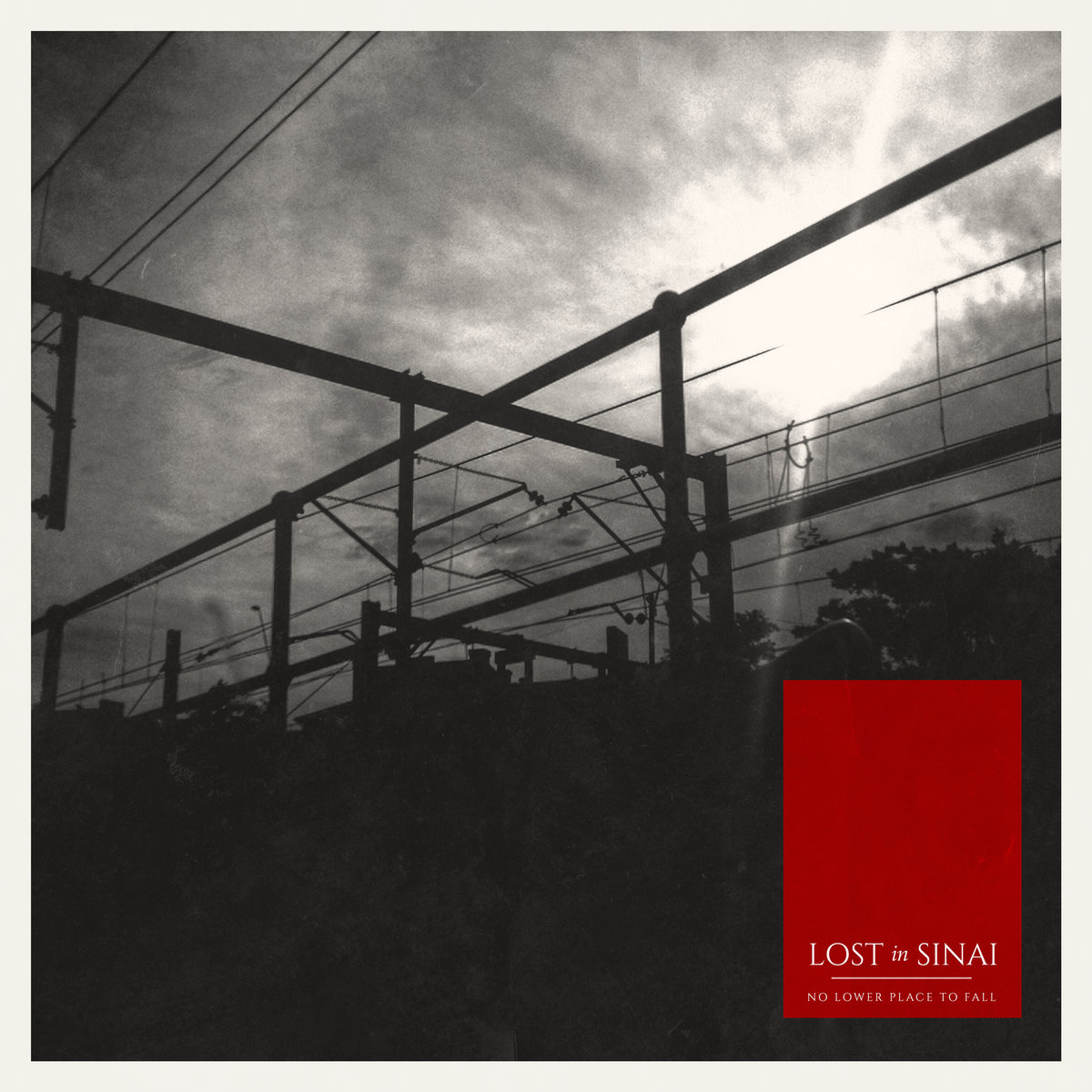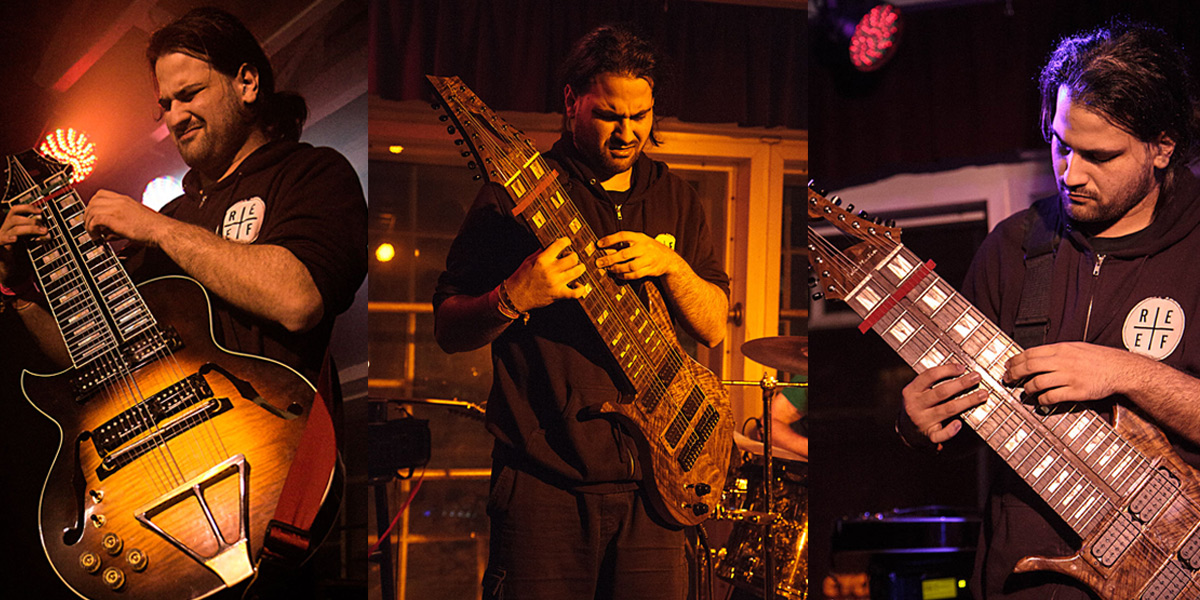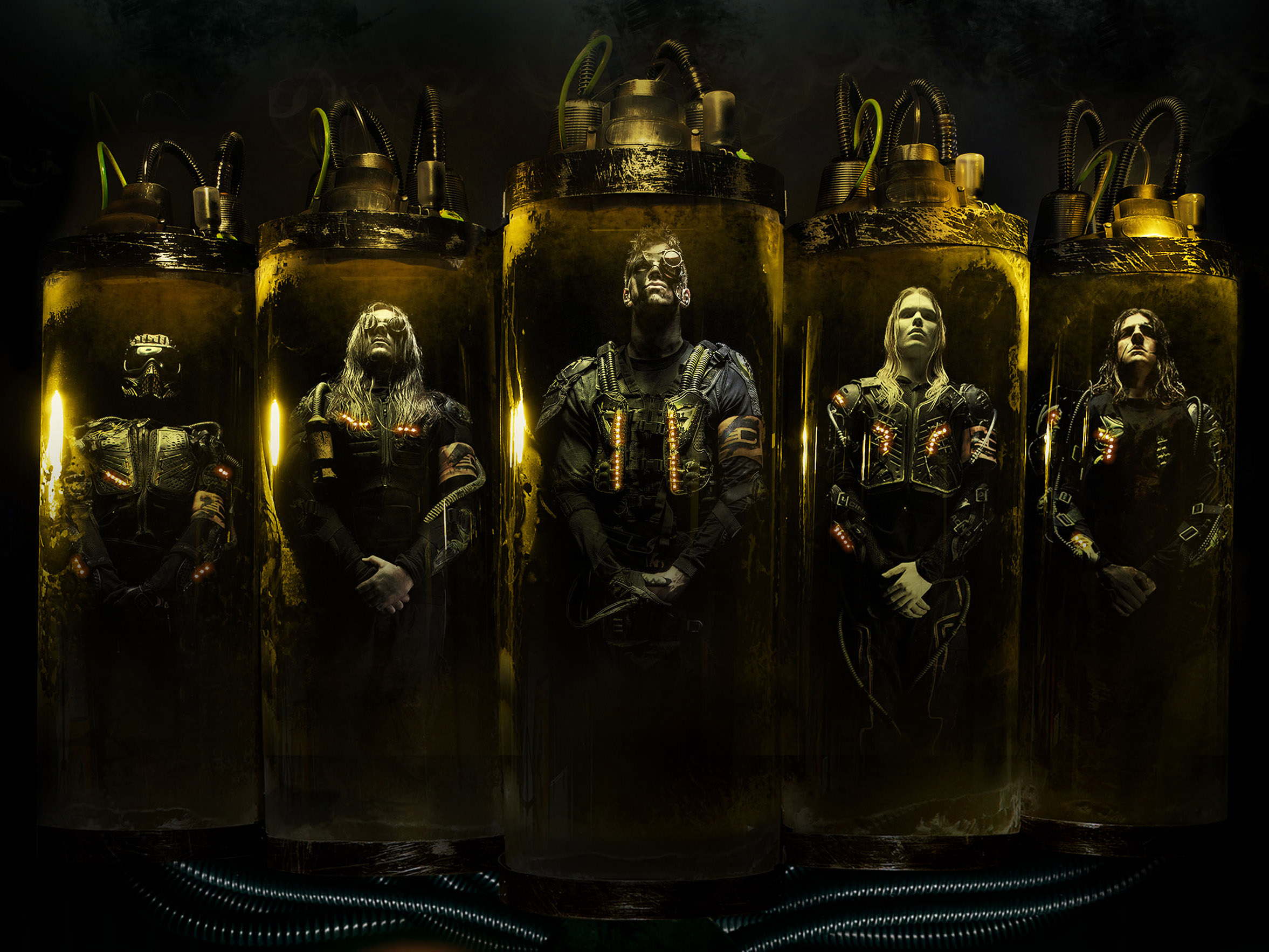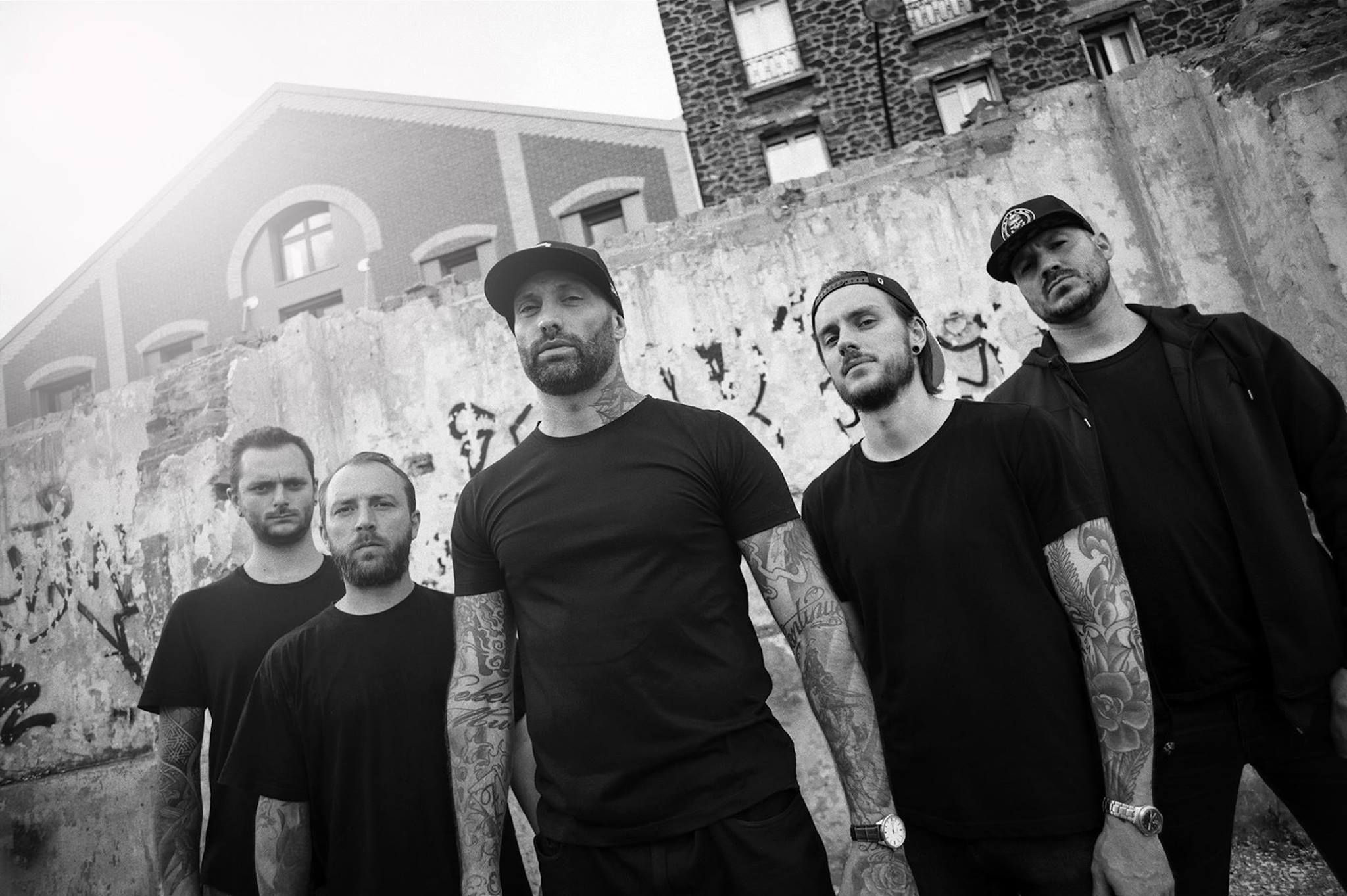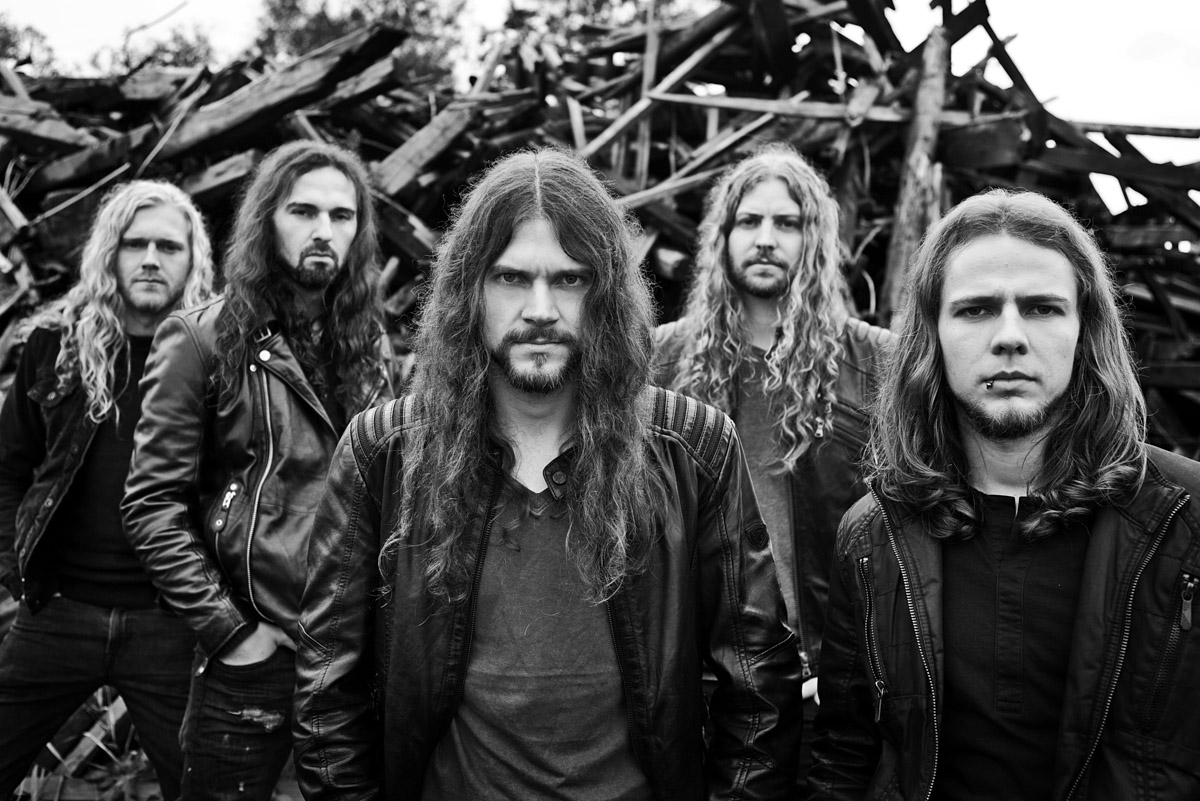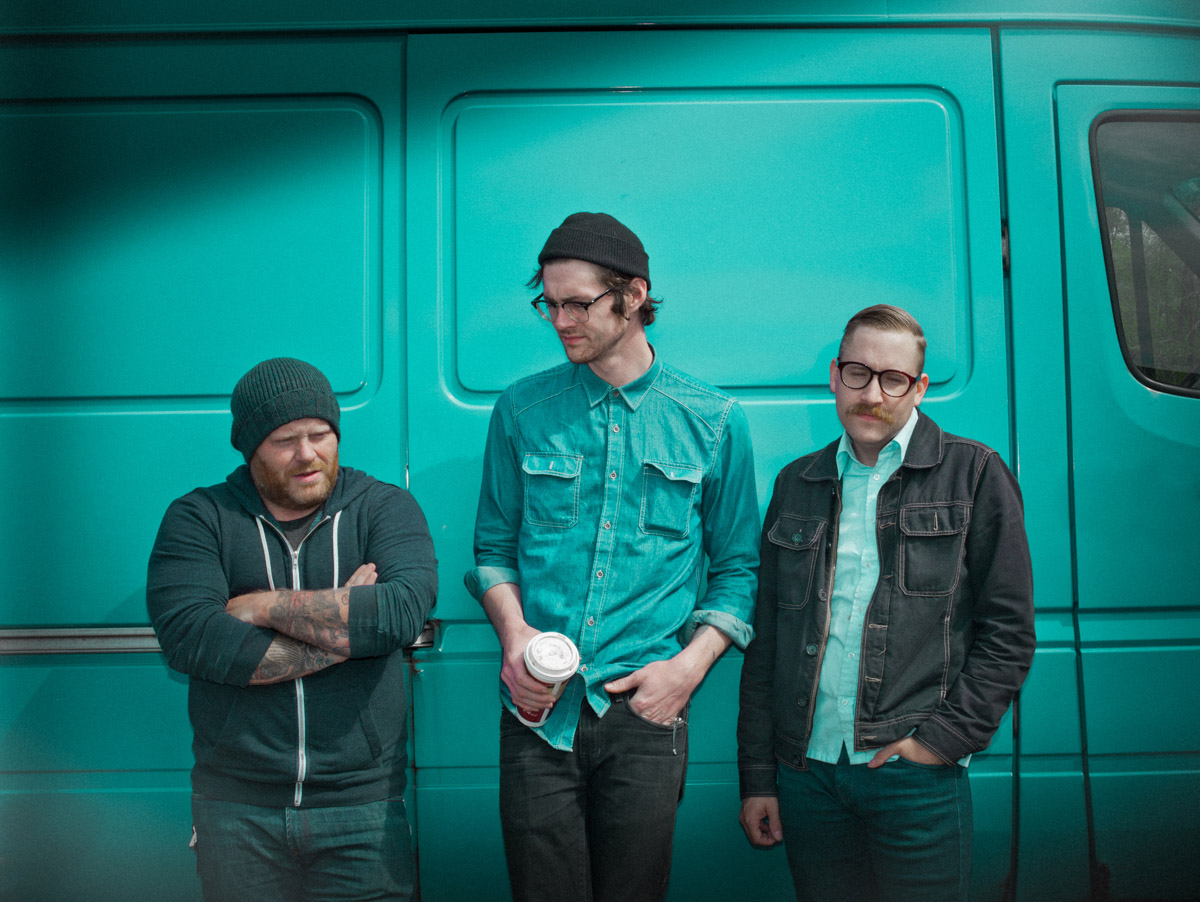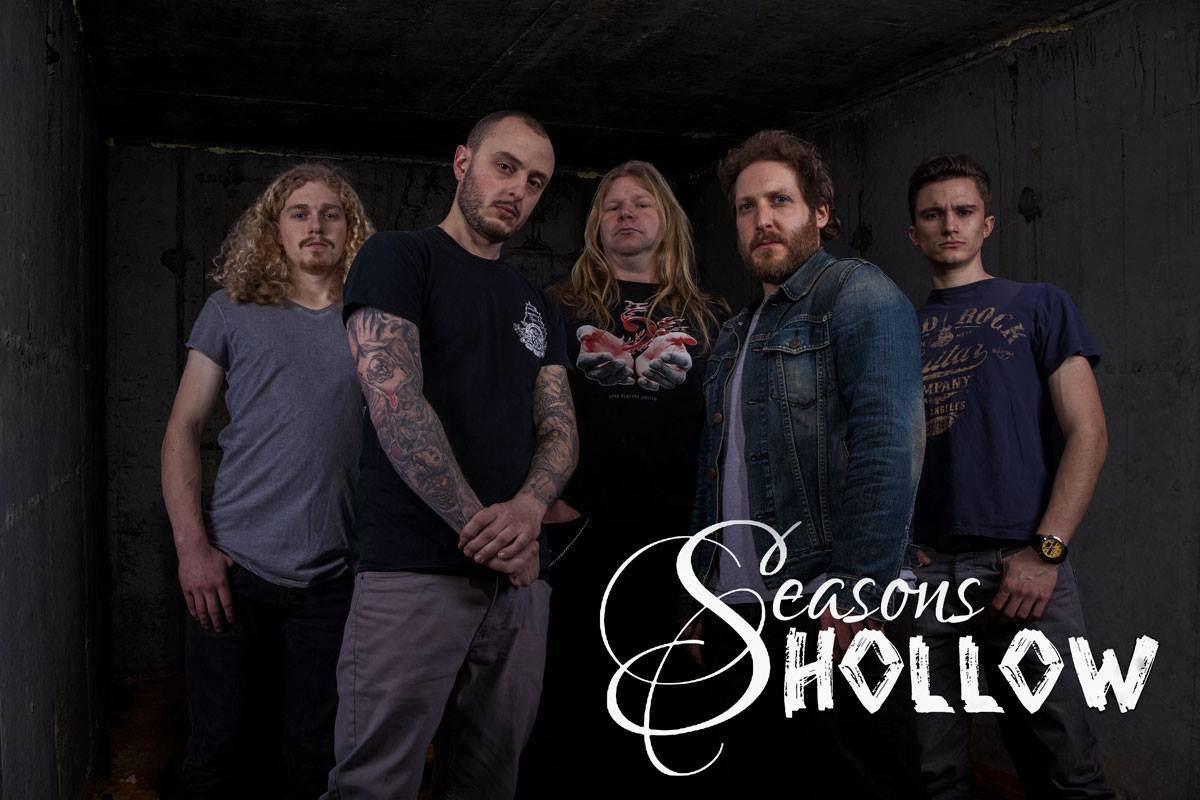Artists are a diverse bunch. Some are laser-focused on a particular outlet, pouring every ounce of inspiration into a single ongoing realization of their impulses and motivations. Others are restless creatures, unsatisfied with a singular vision or medium. Their creativity burns and writhes, swelling with pressure as it splits into countless directions, one after another.
Sam Dishington falls into the latter category. Though metal is his primary medium, he has applied it fervently to one project after another. Some are short-lived, a solitary statement of intent and purpose for a particular moment in time. Others, such as his primary band Départe, have endured across multiple releases.
Dishington’s latest release is as No Lower Place to Fall, with the epic post-black metal anthem “Lost in Sinai.” The song began as a writing exercise, but soon gained a higher purpose. “I wrote a chord progression on my acoustic guitar, and I saw a video about a little girl named Malak who was orphaned in the Syrian conflict, and thus No Lower Place to Fall was born,” Dishington explained in an official statement. “Over the space of four cold evenings this past week, I wrote ‘Lost in Sinai’, a song of birthed of both conviction and deliberate action against my own personal fears and anxieties.”
Stream and buy “Lost in Sinai” by No Lower Place to Fall below, then scroll down for a Q&A with Dishington. All proceeds from the song’s digital downloads will be donated to the Preemptive Love Coalition.
ANTIHERO: What led you to create No Lower Place to Fall as a separate project? Was it the music that demanded a new platform, or the inspiration behind the lyrics?
Sam Dishington: It was definitely to do with the music more than the lyrics. As soon as the idea for the start of the song came about, I knew it wasn’t going to fit stylistically inside any of my other projects. I was initially thinking about just releasing it as “Sam Dishington” so I didn’t have to build a new project around it, seeing it was just one song, but to me, that seemed lazy like I was skipping an important step in my process or something.
I’m always fairly deliberate about how I brand and market my music, and as such, not naming and branding this one appropriately didn’t sit right with me.
ANTIHERO: Can you retrace your initial thought process between the moments after you watched Malak’s video, and how it guided your creative endeavor in the ensuing days?
Sam Dishington: By the time I saw the video, I had already written the opening chords to the song, so I had already decided to attempt to write the song. The video just gave me a place of conviction to work from lyrically, as well as a worthy cause that I could then use the money coming in from the project to support.
ANTIHERO: You’re donating all proceeds from paid downloads of “Lost in Sinai” to the Preemptive Love Coalition. Can you speak a bit about this organization and their work?
Sam Dishington: The Preemptive Love Coalition provides relief for war-torn families on the frontlines of conflict, where they provide food, water, and medical care. They also create jobs for those victimized and displaced by war so that they can continue to rebuild their lives and their families without having to rely on handouts, which of course is far more sustainable than just providing handouts.
ANTIHERO: Are you envisioning No Lower Place to Fall as a one-song project, or would you consider a full EP or album in the future?
Sam Dishington: It’s hard to say. I would certainly entertain the idea of continuing it either in further one-off songs, or a more complete and “official” release if inspiration struck like it did this time around, but it’s not something I’m going to actively pursue.
ANTIHERO: When creating new music, do you set out to write for a specific project, using it as a starting point? Or do you allow the music to flow freely, then figure out where it belongs?
Sam Dishington: In the past, I’ve sat down with my guitar with the direct purpose of working on a specific project that I want to make progress with. I’ve since discovered that that doesn’t really work for me, because me wanting to do something and me feeling inspired to do something are two very different things.
What I’ve found I do now is I’ll just pick up my guitar, hit record, and just sort of jam for a while until I get into the groove of whatever is coming out of my brain at that moment in time, and then I just run with it. Sometimes the output of these sessions fits with an existing project of mine, sometimes it’s just a random collection of riffs and ideas. Either way, I’m trying to teach myself to just let it happen, let the creative juices flow in whatever direction they choose, and if it turns into something I can use in a certain project, then great. If it doesn’t, then I’ve had a good practice session.
In the case of Lost in Sinai, I very much went in without a structural plan, or even really a deliberate stylistic direction. I had the opening chords, which had a bit of a Deafheaven-y vibe to them. From that point, upon finishing each section, I would consider what feels like it needs to happen next in the song, rather than worrying too much about the specific genre or vibes. That’s the benefit of working on music that isn’t for a previously established project, I guess, it can just go wherever it takes itself.
ANTIHERO: What separates your various musical outlets from one another?
Sam Dishington: The separation between each of my projects is pretty much 100% due to genre. Lyrical themes are carried over between them, the exception, of course, being Separatist, which followed a very specific concept/story. That said, there are often stylistic vibes connecting between them at times. Not intentionally, I think it’s just bound to happen when you’ve got the same guy writing several different styles.
For example, I’ve had people tell me that parts of Lost in Sinai sound a bit like one of my other projects, Quiet Waters, but with fast drumming. In another instance, when Closure by Separatist finally came out three years after it was supposed to, I had people say that it felt like it bridged the gap stylistically between the earlier Separatist material and what I was currently doing in my main project Départe, although as someone who is as close to it as I am, I couldn’t hear it myself. I kind of feel like I answered your question in the first sentence and then went off on a tangent there.
ANTIHERO: Do you plan to return to Separatist at some point?
Sam Dishington: I would very much like to, but it will take me feeling particularly inspired to make it happen. Tech death isn’t really something I listen to that often anymore, but I still semi-regularly dabble in some of the albums that influenced me in writing that material, and even some of the newer stuff in the genre.
I feel like if I was to return to Separatist, it would sound pretty different to how it sounded back then because I will be viewing it all through a different lens to what I did when that material was written. The Motionless Apocalypse came out 10 years ago, and while Closure only came out four years ago, it was written eight years ago. Things have changed significantly in that time.
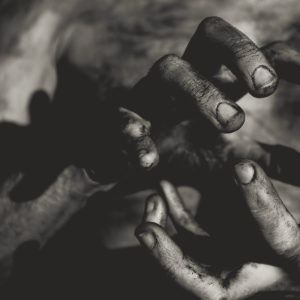 ANTIHERO: How does your songwriting process for Départe differ from what you do in your solo projects?
ANTIHERO: How does your songwriting process for Départe differ from what you do in your solo projects?
Sam Dishington: Until recently, it’s been pretty similar, because I was previously the sole songwriter for the band. Moving forward, however, we are working towards being more collaborative with our writing. I know the other guys in the band have great ideas, and I am very excited to hear how they develop and grow the overall Départe vibe, but it’s going to be a difficult process for all of us because it’s simply not something we’re used to. I truly believe, though, that the end product of this hard work will be very much worth the effort it takes to make it happen the way we want it to happen.
ANTIHERO: How would you describe the approach Départe is taking with regard to this new work?
Sam Dishington: We’re still very much in the early stages. We have a huge amount of random material lying around that hasn’t been used, ideas for riffs, buildups, chord progressions, a little bit of everything, we just need to really sit down with it and put it together, find what works and what doesn’t, as well as composing all new material around it.
Our intention for the new material is to push our sound to new extremes in all directions – the darker parts more chaotic, the emotional parts even more cathartic, it’s going to be interesting to see how we pull it all together into something cohesive, but I think we’ll get there.
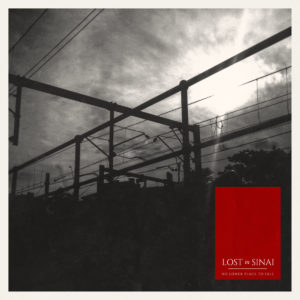 ANTIHERO: You use a variety of vocal styles in your work. How do you decide which technique you’ll use at any given moment?
ANTIHERO: You use a variety of vocal styles in your work. How do you decide which technique you’ll use at any given moment?
Sam Dishington: It depends on how I’m feeling at the time. Sometimes I’ll approach something with a specific vocal style in mind, which is what I did with Lost in Sinai, and other times I’ll just wing it and see where the song takes me vocally. With Lost in Sinai, I specifically wanted to use a vocal style that sounded different to what I do in Départe because I wanted to push myself and try new things. I managed to keep that style going until the end of the song, then the Départe vibes started creeping back in again, but as I alluded to earlier, that’s just what the song called for. There’s no point being restrictive just for the sake of it.
ANTIHERO: What’s your recording and production setup for your solo projects?
Sam Dishington: Tech-wise, I use Pro Tools 10, running through a Focusrite Scarlett 6i6 audio interface, outputting to a pair of KRK studio monitors. For the music/tonal aspect, these days I use a Line 6 Helix LT for guitar and bass, the GetGood Drums Matt Halpern drum library for drums, the Native Instruments Komplete 8 Ultimate library for all things synth and ambience, and mostly in-built mixing plug-ins, with the exception of a handful of purchased ones from Joey Sturgis Tones and a couple of freebies from Focusrite and Native Instruments.
ANTIHERO: How do you approach drum programming? Are there specific drummers to whom you turn for inspiration? How do you go about creating lifelike performances with your programmed drums?
Sam Dishington: I’m sure my drum composition style is influenced by particular drummers and bands, but to be honest with you, I couldn’t tell you who they are. I approach drums the same way I approach composition, as previously mentioned. It’s all about flow, about taking it step by step, and not only thinking about what works with the riff or section you’re currently working on, but also how it works in the context of what precedes or what follows.
In terms of creating lifelike performances, I’m constantly learning new things. I’m very lucky to be surrounded by some incredible drummers, both in my own band and in my close circles of friends, and they have been able to offer insight as I developed my techniques. It’s about time, attention to detail, and understanding how drummers actually play in terms of dynamics.
ANTIHERO: If you could go back and give early-days Sam one pearl of wisdom when it comes to home production, what would it be?
Sam Dishington: To be honest, I’m not really sure. I don’t actually feel like I really know much more now than I did then, I still feel like I’m just winging it when I produce stuff at home. I think I’m just getting better at winging it!
I guess I would say, “listen to other bands’ mixes for reference more often,” and, “learn about high pass and low pass filters, they’ll save you a lot of grief”. I realize that’s two pearls of wisdom, but I figure if I say them both quickly it might count as one.
Explore Dishington’s work on Bandcamp, and stay up-to-date via Facebook with No Lower Place to Fall and Départe.

